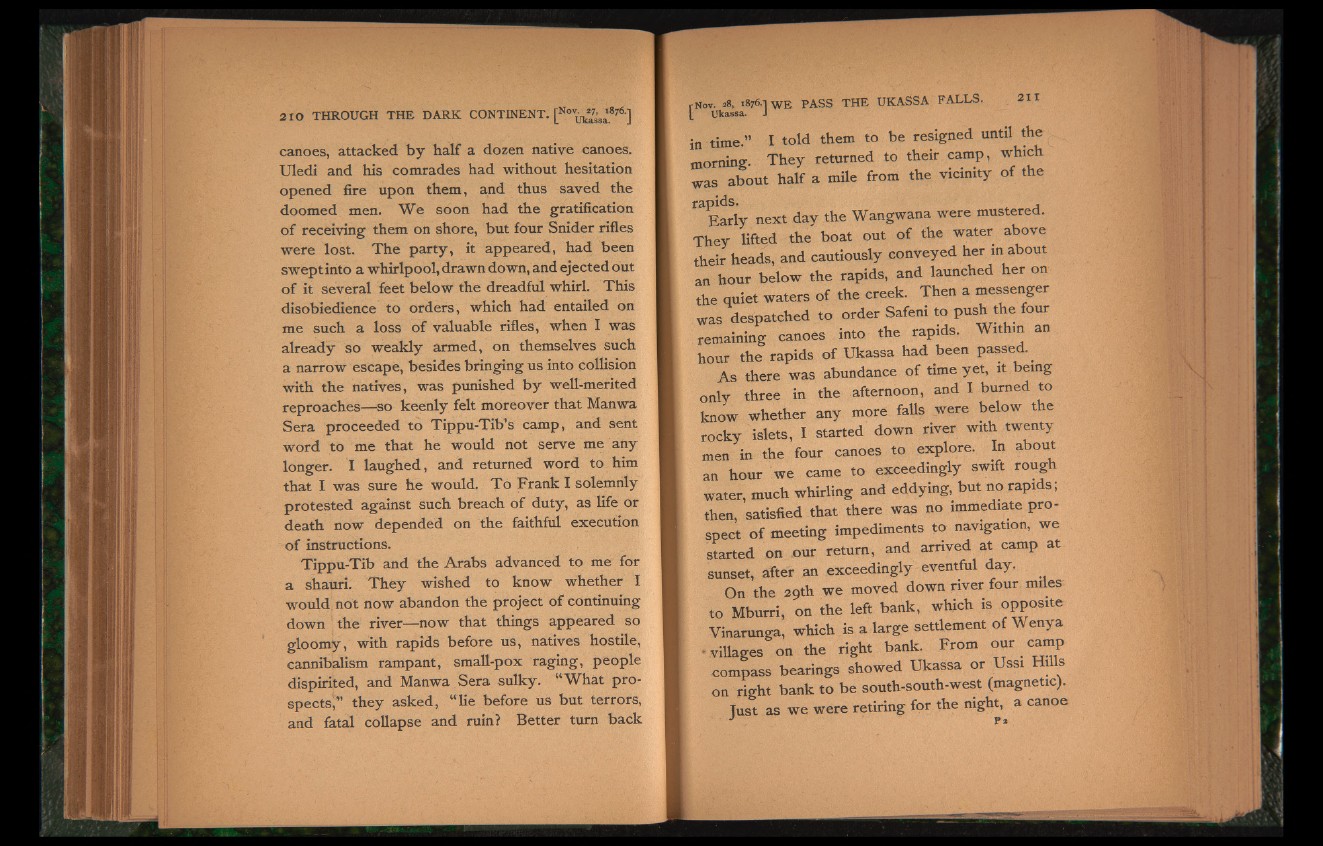
canoes, attacked by half a dozen native canoes.
Uledi and his comrades had without hesitation
opened fire upon them, and thus saved the
doomed men. We soon had the gratification
of receiving them on shore, but four Snider rifles
were lost. The party, it appeared, had been
sweptinto a whirlpool, drawn down, and ejected out
of it several feet below the dreadful whirl. This
disobiedience to orders, which had entailed on
me such a loss of valuable rifles, when I was
already so weakly armed, on themselves such
a narrow escape, besides bringing us into collision
with the natives, was punished by well-merited
reproaches— so keenly felt moreover that Manwa
Sera proceeded to Tippu-Tib’s camp, and sent
word to me that he would not serve me any
longer. I laughed, and returned word to him
that I was sure he would. To Frank I solemnly
protested against such breach of duty, as life or
death now depended on the faithful execution
of instructions.
Tippu-Tib and the Arabs advanced to me for
a shauri. They wished to know whether I
would'not now abandon the project of continuing
down the river—now that things appeared so
gloomy, with rapids before us, natives hostile,
cannibalism rampant, small-pox raging, people
dispirited, and Manwa Sera sulky. “What prospects’,”
they asked, “ lie before us but terrors,
and fatal collapse and ruin? Better turn back
rNov. 28, .876.-1 WE PASS THE UKASSA FALLS. 211 I Ukassa. J
in time.” I told them to be resigned until the
morning. They returned to their camp, which
was about half a mile from the vicinity of the
^Early next day the Wangwana were mustered.
They lifted the boat out of the water above
their heads, and cautiously conveyed her in about
an hour below the rapids, and launched her on
the quiet waters of the creek. Then a messenger
was despatched to order Safeni to push the four
remaining canoes into the rapids. Within an
hour the rapids of Ukassa had been passed. _
As there was abundance of time yet, it being
only three in the afternoon, and I burned to
know whether any more falls were below the
rocky islets, I started down river with twenty
men in the four canoes to explore. In about
an hour we came to exceedingly swift rough
water, much whirling and eddying, but no rapids;
then, satisfied that there was no immediate prospect
of meeting impediments to navigation, we
started on our return, and arrived at camp at
sunset, after an exceedingly eventful day.
On the 29th we moved down river four miles
to Mburri, on the left bank, which is °PPosite
Vinarunga, which is a large settlement of Wenya
' villages on the right bank. From our camp
compass bearings showed Ukassa or Ussi Hills
on right bank to be south-south-west (magnetic).
Tust as we were retiring for the night, a canoe